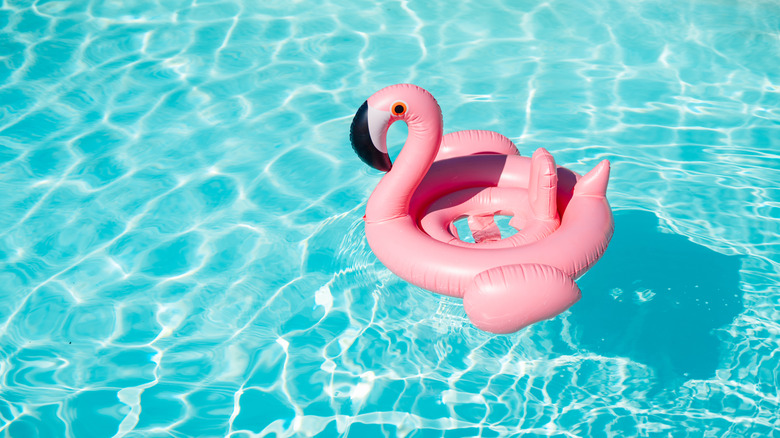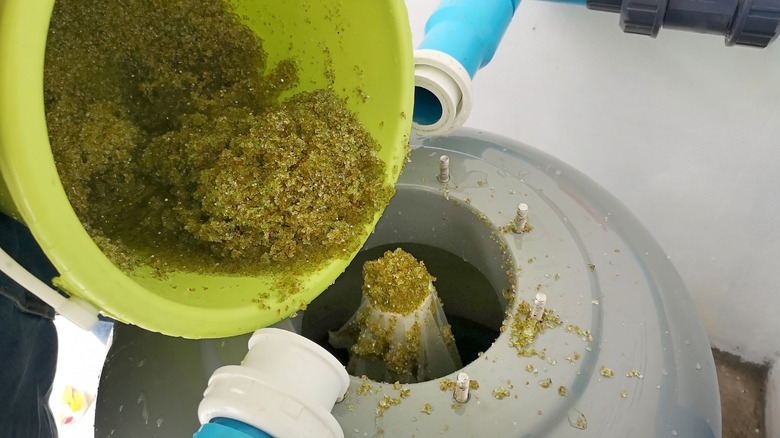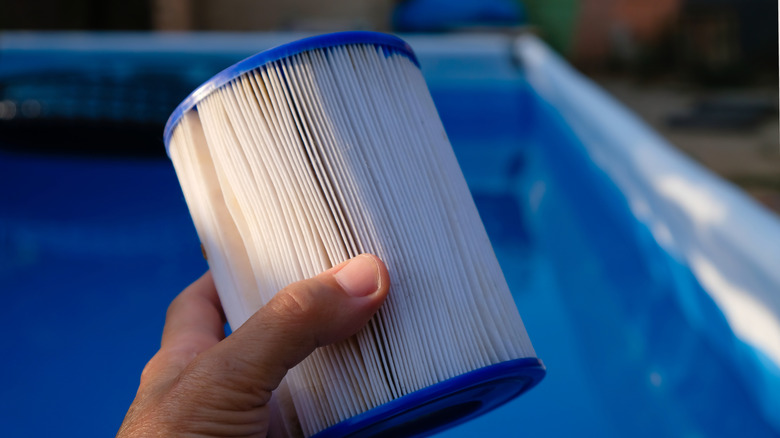Is Glass Media For Your Pool Filter The Right Option For You?
Glass media has emerged as an excellent alternative to traditional sand in pool filtration systems, offering a slightly better combination of performance and stability. Made from recycled glass that's been tumbled and polished into small, uniform granules, this filtration medium works similarly to sand but with a few notable differences. The angled shape of the glass particles helps create more surface area for trapping debris, all while allowing better water flow compared to rounded sand grains. As the water passes through the filter tank, the glass captures even smaller particles than the standard sand can typically filter out. This helps you fix a cloudy pool and gets it looking crystal clear.
The glass particles also naturally repel oils and organic materials that would normally cling to sand, reducing the number of backwashings required. Sand will also degrade over time, usually having to be replaced every 3 to 5 years. By comparison, glass media can last for 10 years before needing to be refreshed. The material is also pH neutral, which means it won't affect your pool's chemical balance like some sands can. It's also a positive for the planet, giving recycled bottles and glass a new life, which makes it one of the greenest pool filtration options available.
Glass vs sand: which pool filter media performs best?
When comparing glass to traditional sand filter media, several differences become apparent. Glass provides superior filtration since it's able to capture smaller particles that would pass right through sand filters. The increased surface area of the glass granules means they can trap more contaminants while actually improving the water flow compared to sand. Maintenance requirements also differ, glass needs backwashing much less often than sand, saving both water and energy over time. Chemical usage often decreases with glass media as well since glass doesn't hold on to bacteria the way sand can, reducing the need for shock treatments in your pool.
Of course, nothing is perfect, and the choice to go with glass does come with some downsides. If you're trying to keep your backyard pool on-budget, the initial cost is generally about double or triple that of a quality sand filter. The extended life span does help offset this initial upfront cost, though. Unlike sand, which shows obvious wear, glass degradation happens much more gradually, making it harder to know exactly when a replacement is needed. However, if you're a pool owner who values crystal-clear water and less maintenance, these small drawbacks might be easier to accept.
How cartridge and diatomaceous earth filters stack up against glass
While glass-versus-sand seems to dominate the conversation when it comes to pool filtering, there are other systems that deserve your attention. Cartridge filters offer a completely different approach. These filters use pleated fabric elements that trap debris without using any granular media. They can provide excellent filtration without the need for backwashing, just an occasional hose cleaning. Diatomaceous earth (DE) filters are fantastic for water clarity, filtering particles as small as one micron by coating grids with a fossilized algae powder. Each system has its own advantages. Cartridge filters are great for smaller pools with limited water availability, and DE filters can deliver exceptional clarity for larger pools where water quality matters.
The choice to use any of these systems comes down to your priorities, and glass media helps split the difference between them all. It can offer better filtration than sand, but not quite as fine as DE, and has easier maintenance than either DE or cartridges. For vacation homes or seasonal pools, cartridge systems might make more sense since they are easier to clean and can sit through winter without problems. Environmentally speaking, glass beats DE, which requires periodic replacement of the powder, while offering a similar lifespan to cartridges. No matter what you choose, the most important thing is to pay attention to signs that your pool needs cleaning and keep up with your regular maintenance.


